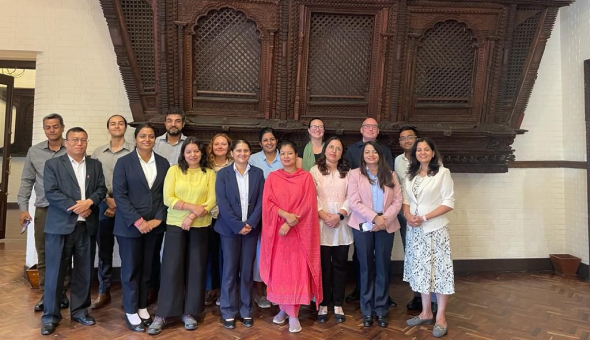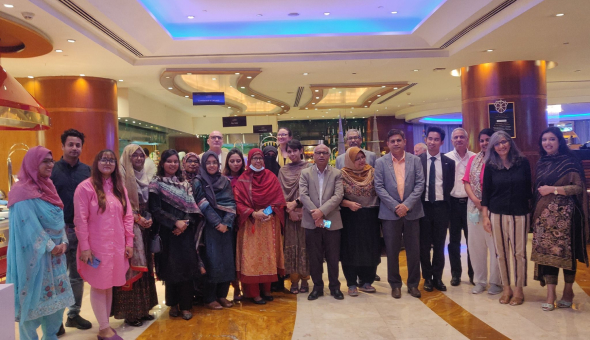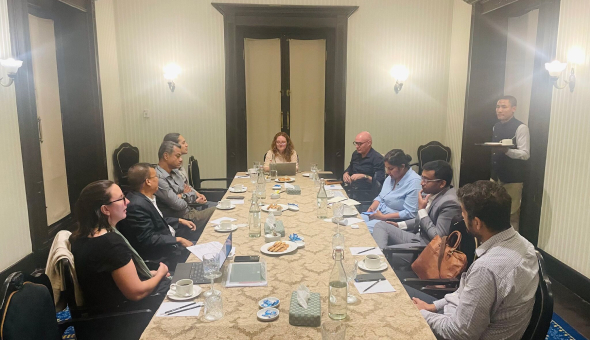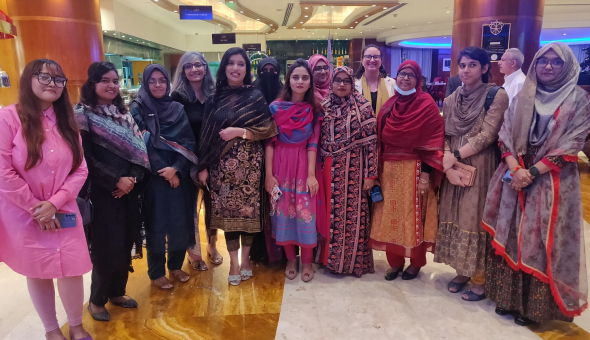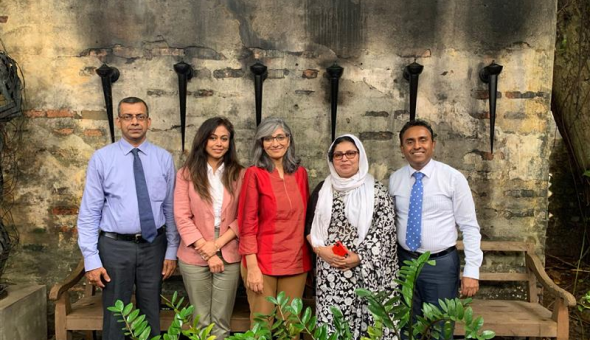Bangladesh and Nepal
Apart from inter-cohort networking, the SARIC alumni also had the opportunity to meet Ishara Davey from the Department of Foreign Affairs and Trade (Government of Australia), Abhirup Bhunia and Shivani Manaktala from SARIC, Ty Morissey and Joshua from Adam Smith International, and Catherine Renshaw and Tait Brimacombe from the Strategic Development Group.
The SAR-100 program, an ongoing initiative, is a unique technical training program crafted for 100 Women Energy Professionals in the South Asian region. This program has fostered a dynamic community of women energy experts, facilitating the exchange of knowledge across the South Asian region. This hybrid training program brings together women energy professionals from Bangladesh, Bhutan, India, Maldives, Nepal, Pakistan, and Sri Lanka.
